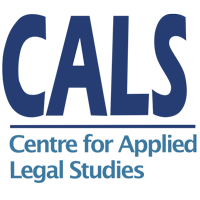One of the main threats to the social grant system involves a contract between the government agency responsible for paying social grants, the South African Social Security Agency (SASSA), and a corporation called Cash Paymaster Services (CPS). This contract to distribute grants began in April 2012 and was set to run until the end of March 2017. By April 2014, the Constitutional Court had ruled the contract was invalid and that CPS had no right to benefit from it. The Court suspended its order of invalidity, allowing the contract to continue, to ensure that grant beneficiaries were not impacted and to give SASSA time to either insource the payment of grants or to run a competitive tender process.
It became clear in early 2017 that SASSA would not meet its April deadline and that there was no plan in place to continue paying grants once the unlawful contract with CPS had ended. At the time, CPS was the only entity capable of distributing social grants and this put them in an ideal position to negotiate a further uncompetitive contract exploiting the grant system.
CALS, on behalf of the Black Sash Trust, therefore approached the Constitutional Court in February 2017 bringing the matter against SASSA, CPS and the Minister of Social Development. We hoped to find a way to protect the social grants system and ensure there was no interruption in grant payments. We asked the Court to oversee the contract with CPS to confirm it would not be exploitative of the grant system, and to ensure grant beneficiaries’ data would be kept confidential. The Court heard our application on 15 March 2017 and handed down judgment two days later.
The judgment granted all the relief we sought, confirming the importance of the constitutional right to social assistance and the role civil society can play in holding the public and private sectors to account. The Court ordered that CPS had a constitutional obligation to continue distributing grants for a further 12 months; that the state must develop a plan to pay grants after the 12 month period and report on its progress every three months; that a panel of experts chaired by the Auditor General must be established to assist the Court in reviewing these reports; and that grant beneficiaries’ data must be protected.
The Court further asked the Minister of Social Development, Bathabile Dlamini, to explain why she should not be joined to the litigation in her personal capacity and personally pay the costs of the application since she had failed in her duties. On 15 June 2017, she was indeed joined to the matter and the Court established an inquiry in terms of Section 38 of the Superior Courts Act to investigate any outstanding issues related to her role in the crisis. More information on can be found in the ‘Inquiry’ section below.
In early 2018, despite the oversight mechanisms in place, it became obvious that SASSA would, once again, miss the deadline to take over paying social grants. SASSA applied to the Court for a further extension to the unlawful contract with CPS to allow time to migrate SASSA bank accounts to the South African Post Office. CALS and the Black Sash were unable to oppose the application given the significant risk posed to grant beneficiaries.
On 6 March 2018, we returned to Court to argue that grant beneficiaries and their personal information must be protected and there was no justification to pay CPS any additional fees for fulfilling its constitutional obligations. On 24 March, the Court handed down judgment allowing the extension for a further six months – but only for cash payments, with the Court’s supervision and on the same conditions as the previous contract. The Court further ordered that the Minister and SASSA must file monthly reports on their progress and must ensure beneficiaries’ data is protected.
The Court once again called on then-Minister of Social Development, Bathabile Dlamini, as well as Acting CEO Pearl Bhengu to explain why they should not be joined to the case in their personal capacities and held liable to pay costs for the litigation.
On 30 August 2018, the Court handed down a further judgment providing reasons for the March ruling and ordering SASSA and its CEO to pay costs in her official capacity.


